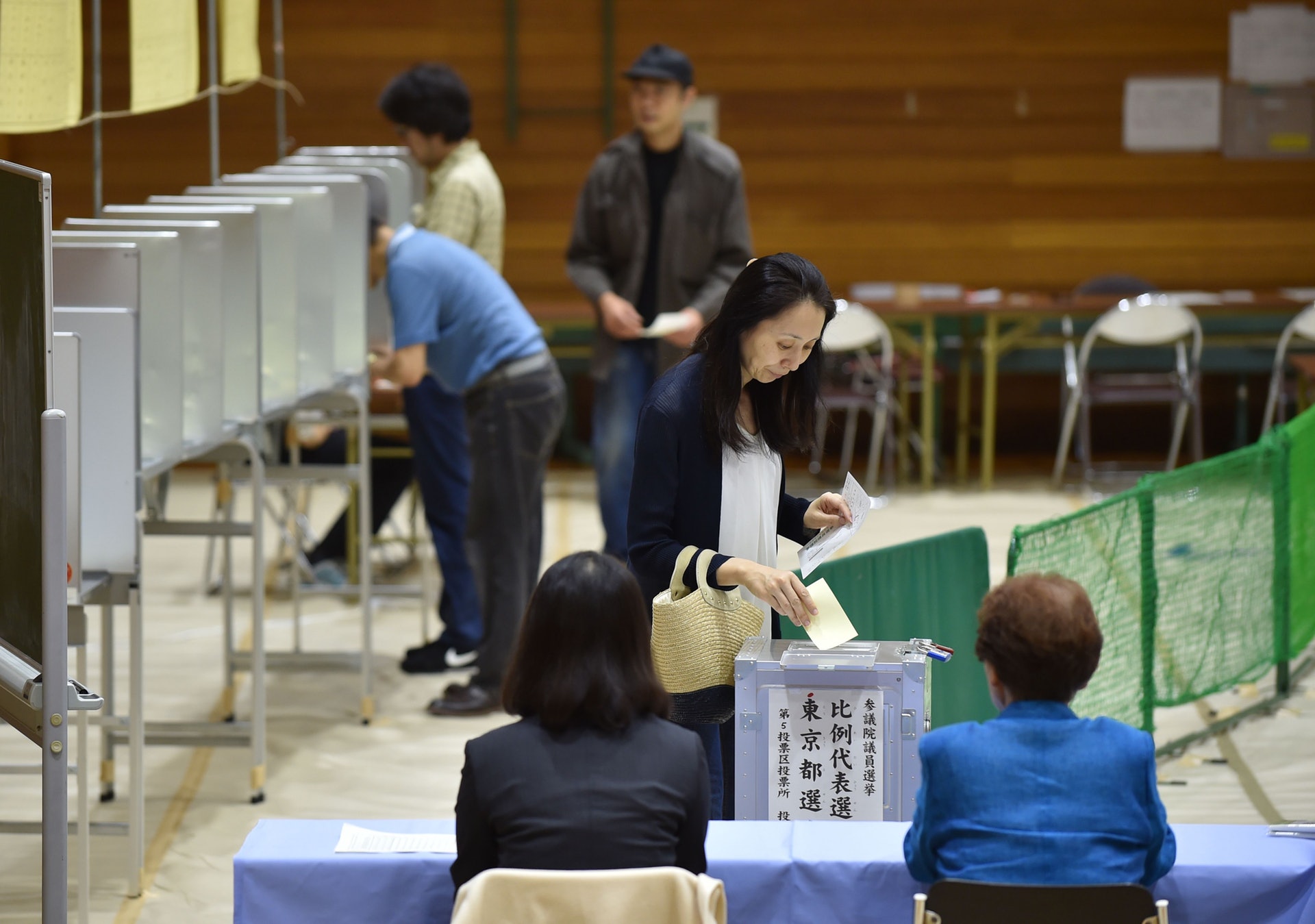The Japanese Senate has begun operations after its reelection on July 21. Prime Minister Shinzo Abe’s Liberal Democratic Party and ruling ally’s Komeito Party won 71 seats in 124 re-election seats, plus 70 seats without re-election, 141 seats in the ruling coalition, and continued to maintain majority status in the Senate with a total of 245 seats. .
Although the Liberal Democratic Party camp failed to obtain the “super majority” status of more than two-thirds of the seats in the Senate, its “revision of the constitution” plan will not be followed, but for Abe, it will be shaken by the “post-war system.” The constitutional act, he may do far more than this. Some of the information reflected in this election will be presented in the next two years.
Constitutional amendment is not the biggest problem
According to the results of the third presidential election of the Liberal Democratic Party in September last year, Abe’s third prime minister’s term will continue until September 2021, meaning that the next 25 months will be his last chance to change Japan.
In 1947, the Japanese Constitution, known as the “Peace Constitution,” came into force, and Article 9 laid the foundation for the unarmedness of Japan. In the seventy years after the war, the Japanese people gradually became accustomed to the status of a “peaceful state.” In this environment, the public opinion became stronger and stronger, and Abe’s constitutional revision process will become more and more difficult.
In this year’s Senate re-election, the Japanese people are most concerned about the international issue of constitutional amendment, but the issues related to the people’s livelihood, such as annuities (ie pensions) and consumption taxes.
Japan’s population is aging, and many Japanese who have entered middle age have turned their eyes from international to themselves. According to data from the Ministry of Internal Affairs and Communications of Japan last September, the number of people over the age of 70 in Japan exceeds 20% of the total population. In addition, Japan is also the longest-lived country in the world. According to data from the Ministry of Health, Labour and Welfare, the average life expectancy of Japanese women is 87.26 years old, and that of men is 81.09 years old. This long-lived expectation hides the danger of insufficient pensions.
The Japan Financial Services Agency issued a report in early June this year, saying that under the current pension system, a couple who are 30 years old after retirement, that is, about 95 years old, may face an annuity gap of 20 million yen (about 1.45 million Hong Kong dollars). Although the Japanese government refused to accept the report, insisting that “the annuity can basically support the retirement of the people”, the gap of 20 million yen has become a popular buzzword among Japanese people. Since the beginning of 2012, the Abe cabinet has been closely watched for sensation, and it is impossible to ignore this.
In addition to the traditional threat of “20 million yen”, a major issue in this election is the consumption tax policy that the Japanese have been worried about for many years and finally implemented. The Abe government plans to raise the consumption tax rate from 8% to 10% in October this year. The ruling coalition believes that it is necessary to increase the consumption tax rate in order to support spending on childcare. The major opposition parties believe that raising the consumption tax may hurt the desire of the people to consume. In fact, the reason why the Liberal Democratic Party lost some of its constituencies in this re-election is one of the major reasons for its consumption tax policy.
Who is distracting the interest of the Japanese?
There is also a background that is easily overlooked in this election, that is, the Japanese people’s interest in politics seems to be gradually decreasing. According to data from the Ministry of Internal Affairs and Communications of Japan, the voter turnout rate for this constituency election is only 48.8%, the lowest since 1995; the proportional voter turnout rate is only 48.79%. The voter turnout rate for this election was the second lowest since the end of the Second World War.
When the Japanese people felt that the election lacked attractive options, some of the absurd options that seemed to “seek fun” came into being. For example, in this election, Taro Yamada of the Liberal Democratic Party relied on the support of anime fans to win a high vote of 530,000 votes by virtue of his opposition to the restrictions on animation, games and novels in the Basic Act on Youth Comprehensive Development. Elected.
The “Land and New Elections” created by Mr. Yamamoto, who has been involved in the political arena from the entertainment industry and who has appeared in the film “The Great Escape”, has also embarked on a similar path. The two “frozen people” in the party recommended by Yamamoto The candidate for cerebral palsy was elected, and his 992,267 votes for “losing the election” made him more popular in politics and the public. The former media person, Li Huaxiao, who created the “protection of the people from the NHK party”, became the most popular laughter and political rookie in Japan with his absurd words and deeds and the political views of the LDP government.
However, more people are well aware of the problems that Japan is currently facing, especially the economic problems. After all, they should be left to professionals to solve. According to data released by the Ministry of Finance of Japan on July 18, Japan’s trade balance in the first half of this year was a deficit of 888.8 billion yen (about 8.22 billion U.S. dollars). There were trade deficits for two consecutive years, including exports to China and South Korea. The decline in the number of manufacturing equipment has had a negative impact.
Under the influence of “Abenomics” in Japan, I am afraid that I can only hope that Abe will continue to work hard in the next 25 months.












